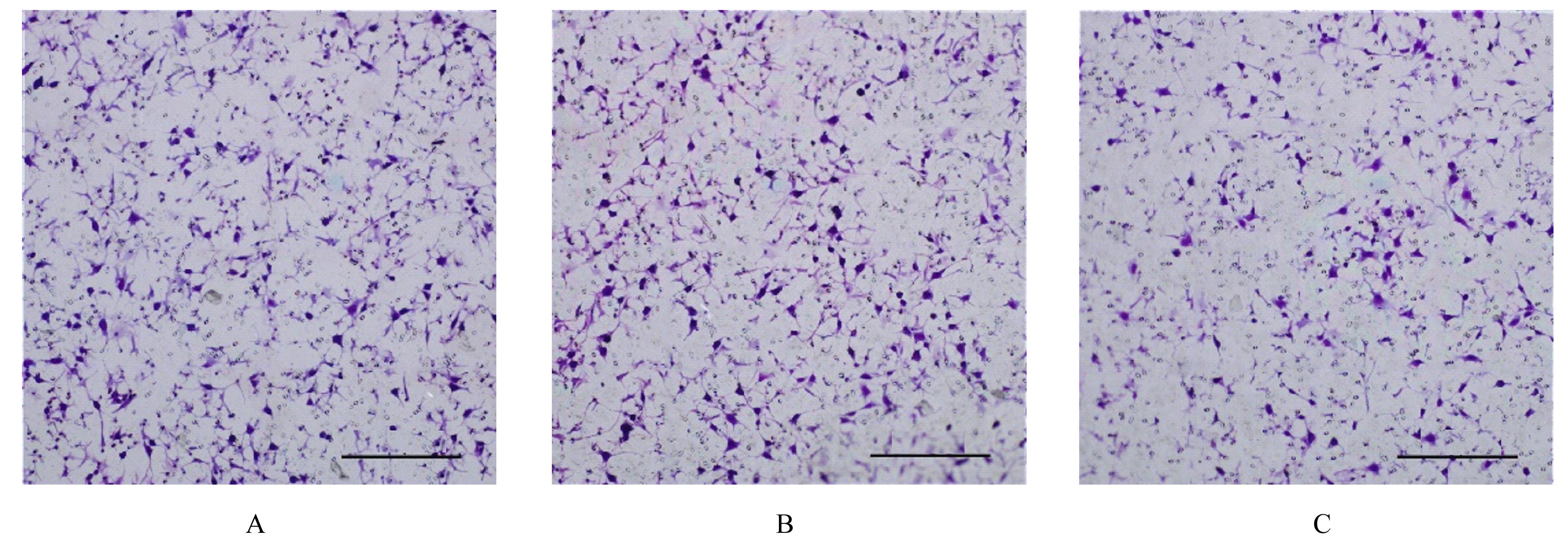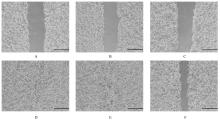| 1 |
BRAY F, FERLAY J, SOERJOMATARAM I, et al. Global cancer statistics 2018: GLOBOCAN estimates of incidence and mortality worldwide for 36 cancers in 185 countries[J].CA Cancer J Clin,2018,68(6):394-424.
|
| 2 |
LAI S F, CHEN Y H, LIANG T H, et al. The breast graded prognostic assessment is associated with the survival outcomes in breast cancer patients receiving whole brain re-irradiation[J]. J Neurooncol,2018,138(3): 637-647.
|
| 3 |
NATHANSON S D, DETMAR M, PADERA T P, et al. Mechanisms of breast cancer metastasis [J]. Clinical & experimental metastasis,2022,39(1):117-137.
|
| 4 |
LI H B, WANG N, XU Y T, et al. Upregulating microRNA-373-3p promotes apoptosis and inhibits metastasis of hepatocellular carcinoma cells[J]. Bioengineered, 2022, 13(1): 1304-1319.
|
| 5 |
PIAO Z R, HONG C S, JUNG M R, et al.Thymosin β4 induces invasion and migration of human colorectal cancer cells through the ILK/AKT/β-catenin signaling pathway[J]. Biochem Biophys Res Commun, 2014, 452(3): 858-864.
|
| 6 |
SUN L, WEI Y, WANG J. Circular RNA PIP5K1A (circPIP5K1A) accelerates endometriosis progression by regulating the miR-153-3p/Thymosin Beta-4 X-Linked (TMSB4X) pathway[J]. Bioengineered, 2021, 12(1): 7104-7118.
|
| 7 |
CAI J, GONG L Q, LI G D, et al. Exosomes in ovarian cancer ascites promote epithelial-mesenchymal transition of ovarian cancer cells by delivery of miR-6780b-5p[J]. Cell Death Dis, 2021, 12(2): 210.
|
| 8 |
ZHENG X W, ZHANG Y W, LIU Y J, et al. HIF-2α activated lncRNA NEAT1 promotes hepatocellular carcinoma cell invasion and metastasis by affecting the epithelial-mesenchymal transition[J]. J Cell Biochem, 2018, 119(4): 3247-3256.
|
| 9 |
YANG F L, GU Y N, ZHAO Z H, et al. NHERF1 suppresses lung cancer cell migration by regulation of epithelial-mesenchymal transition[J]. Anticancer Res, 2017, 37(8): 4405-4414.
|
| 10 |
NAJAFI M, MORTEZAEE K, MAJIDPOOR J. Cancer stem cell (CSC) resistance drivers[J]. Life Sci, 2019, 234: 116781.
|
| 11 |
DU B W, SHIM J S. Targeting epithelial-mesenchymal transition (EMT) to overcome drug resistance in cancer[J]. Molecules, 2016, 21(7): 965.
|
| 12 |
THEUNISSEN W, FANNI D, NEMOLATO S,et al. Thymosin beta 4 and thymosin beta 10 expression in hepatocellular carcinoma[J]. Eur J Histochem, 2014, 58(1): 2242.
|
| 13 |
WANG Z Y, ZHANG W, YANG J J, et al. Association of thymosin β4 expression with clinicopathological parameters and clinical outcomes of bladder cancer patients[J]. Neoplasma,2016,63(6):991-998.
|
| 14 |
LIU C L, ZHANG S, WANG Q Z, et al. Tumor suppressor miR-1 inhibits tumor growth and metastasis by simultaneously targeting multiple genes[J]. Oncotarget, 2017, 8(26): 42043-42060.
|
| 15 |
HARBECK N, GNANT M. Breast cancer[J]. Lancet, 2017, 389(10074): 1134-1150.
|
| 16 |
ZHANG L L, QIN Y Q, WU G, et al. PRRG4 promotes breast cancer metastasis through the recruitment of NEDD4 and downregulation of Robo1[J]. Oncogene, 2020, 39(49): 7196-7208.
|
| 17 |
LIU C C, LI L, HOU G, et al. HERC5/IFI16/p53 signaling mediates breast cancer cell proliferation and migration[J]. Life Sci, 2022, 303: 120692.
|
| 18 |
KUMAR N, LIAO T D, ROMERO C A, et al. Thymosin β4 deficiency exacerbates renal and cardiac injury in angiotensin-Ⅱ-induced hypertension[J]. Hypertension, 2018, 71(6): 1133-1142.
|
| 19 |
SHI B B, DING Q, HE X L, et al. Tβ4-overexpression based on the piggyBac transposon system in Cashmere goats alters hair fiber characteristics[J]. Transgenic Res, 2017, 26(1): 77-85.
|
| 20 |
PAN Q F, CHENG G, LIU Y N,et al.TMSB10 acts as a biomarker and promotes progression of clear cell renal cell carcinoma[J]. Int J Oncol, 2020, 56(5):1101-1114.
|
| 21 |
ŞAHIN S, EKINCI O, SEÇKIN S, et al. Thymosin beta-4 overexpression correlates with high-risk groups in gastric gastrointestinal stromal tumors: a retrospective analysis by immunohistochemistry[J]. Pathol Res Pract, 2017, 213(9): 1139-1143.
|
| 22 |
LEE J W, THUY P X, HAN H K,et al.Di-(2-ethylhexyl) phthalate-induced tumor growth is regulated by primary cilium formation via the axis of H2O2 production-thymosin beta-4 gene expression[J]. Int J Med Sci, 2021, 18(5): 1247-1258.
|
| 23 |
LEE J W, KIM H S, MOON E Y. Thymosin β-4 is a novel regulator for primary cilium formation by nephronophthisis 3 in HeLa human cervical cancer cells[J]. Sci Rep, 2019, 9(1): 6849.
|
| 24 |
YOON H J, OH Y L, KO E J, et al. Effects of thymosin β4-derived peptides on migration and invasion of ovarian cancer cells[J]. Genes Genomics, 2021, 43(8): 987-993.
|
| 25 |
SABRA R T, ABDELLATEF A A, ABDEL-SATTAR E, et al. Russelioside A, a pregnane glycoside from caralluma tuberculate, inhibits cell-intrinsic NF-κB activity and metastatic ability of breast cancer cells[J]. Biol Pharm Bull, 2022, 45(10): 1564-1571.
|
| 26 |
SU L P, KONG X C, LOO S, et al. Thymosin beta-4 improves endothelial function and reparative potency of diabetic endothelial cells differentiated from patient induced pluripotent stem cells[J]. Stem Cell Res Ther, 2022, 13(1): 13.
|
| 27 |
XING Y, YE Y M, ZUO H Y, et al. Progress on the function and application of thymosin β4[J]. Front Endocrinol (Lausanne), 2021, 12: 767785.
|
| 28 |
MORITA T, HAYASHI K.Tumor progression is mediated by thymosin-β4 through a TGFβ/MRTF signaling axis[J].Mol Cancer Res,2018,16(5):880-893.
|
| 29 |
CHU Y J, YOU M, ZHANG J J, et al. Adipose-derived mesenchymal stem cells enhance ovarian cancer growth and metastasis by increasing thymosin beta 4X-linked expression[J].Stem Cells Int,2019,2019: 9037197.
|
 )
)









